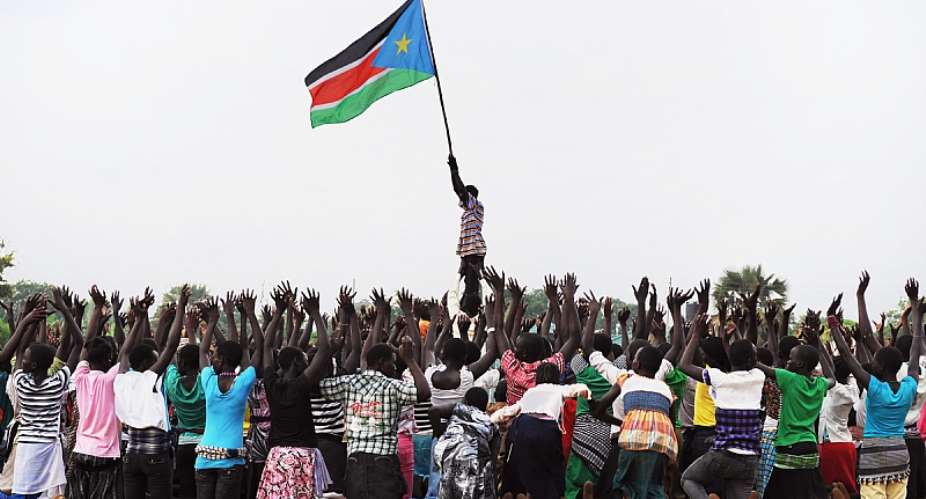Following the adoption of a resolution at the United Nations Human Rights Council, renewing in full the mandate of the Commission on Human Rights in South Sudan (“the Commission”), Amnesty International’s Director for East and Southern Africa, Deprose Muchena said:
“We welcome the Council’s decision to renew the Commission, which is a vital mechanism in the context of grave past and ongoing violations of international humanitarian and human rights law and near-total impunity in the country.
“The Commission plays an invaluable role documenting serious breaches of human rights and international humanitarian law. It contributes to combatting impunity by collecting and preserving evidence for future prosecutions and clarifying alleged responsibilities for crimes under international law and other human rights violations.
“However, it is regrettable that some states tried to block the renewal of this vital mechanism. Last year there was clear agreement by the Council that any move to end the Commission’s mandate would come only alongside demonstrable progress on the ground. Such progress cannot now be claimed by any stretch of the imagination.
“Some states sought to shield South Sudan from further scrutiny by calling a vote on the resolution and presenting a competing resolution. As both resolutions were adopted by the Human Rights Council, however, these efforts have simply resulted in the mandating of more – rather than less - scrutiny of the situation going forward.
“South Sudan must take urgent measures to halt ongoing human rights violations and abuses and continue its cooperation with the Commission as it continues its important work.”
Background
In March 2016, the Human Rights Council established the Commission on Human Rights in South Sudan and mandated it to collect and preserve evidence of human rights violations and related crimes. The Commission is also tasked with providing technical assistance to the Government of South Sudan to establish a holistic transitional justice programme. The Commission has compiled dossiers on 111 individuals allegedly implicated in violations and with command or superior responsibility and whom should be investigated and prosecuted.
Since 2016, the resolution renewing the Commission has been adopted by consensus, and South Sudan is one of the few states to cooperate with a mechanism set up to address its human rights situation. This year, however, South Sudan engaged to reject the renewal of the mechanism. The resolution was adopted by a vote of 20 in favour, 16 against, and 11 abstentions.
In its most recent report, the Commission on Human Rights in South Sudan noted “a massive escalation in violence perpetrated by organized tribal militias” over the past year, fuelled by failure of the signatories to implement the 2018 peace agreement. Amnesty International documented a series of extrajudicial executions, forced displacement, torture, and destruction of civilian property by government and former opposition forces between April and June 2020 in Central Equatoria State, southwest of the capital Juba.
Since the conflict broke out in December 2013, both government and opposition forces have committed crimes under international law and human rights violations including rape and other forms of sexual violence, torture, forced starvation, extra-judicial killings, enforced disappearances, and forcible displacements of thousands of people. Yet, impunity remains the norm.





 Burkina Faso expels French diplomats for 'subversive activities'
Burkina Faso expels French diplomats for 'subversive activities'
 GOIL reduces petrol price by 29 pesewas, sells GHC14.70 per litre
GOIL reduces petrol price by 29 pesewas, sells GHC14.70 per litre
 The disrespect towards security is terrible; we can do better — Atik Mohammed co...
The disrespect towards security is terrible; we can do better — Atik Mohammed co...
 Starlink to cease connection in Ghana, other “unavailable” countries on April 30...
Starlink to cease connection in Ghana, other “unavailable” countries on April 30...
 MMCEs, DCEs and Regional Ministers must be elected to reduce political interfere...
MMCEs, DCEs and Regional Ministers must be elected to reduce political interfere...
 National Cathedral: ‘Nonsense; you take taxes from broke Ghanaians to dig a clum...
National Cathedral: ‘Nonsense; you take taxes from broke Ghanaians to dig a clum...
 April 18: Cedi sells at GHS13.59 to $1, GHS13.01 on BoG interbank
April 18: Cedi sells at GHS13.59 to $1, GHS13.01 on BoG interbank
 We must harness the collective power and ingenuity of female leaders to propel o...
We must harness the collective power and ingenuity of female leaders to propel o...
 Saglemi Housing Project will not be left to rot – Kojo Oppong Nkrumah
Saglemi Housing Project will not be left to rot – Kojo Oppong Nkrumah
 Asantehene commends Matthew Opoku Prempeh for conceiving GENSER Kumasi Pipeline ...
Asantehene commends Matthew Opoku Prempeh for conceiving GENSER Kumasi Pipeline ...
